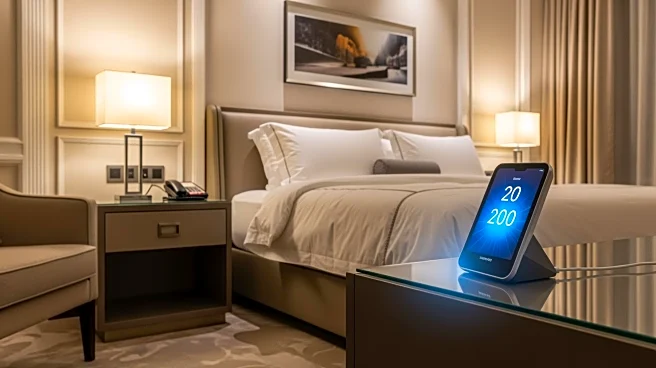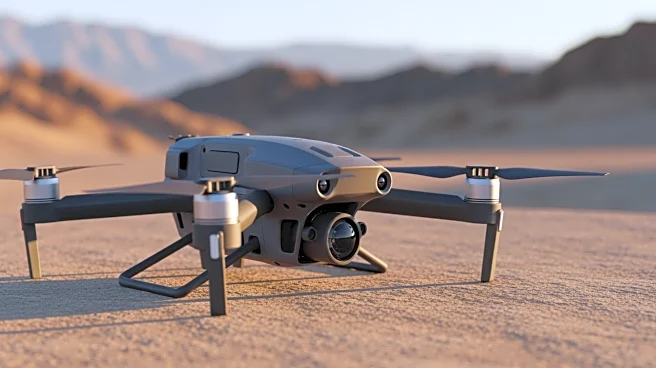What's Happening?
The hotel industry is shifting from reactive service models to predictive, autonomous guest experiences, focusing on AI-powered concierges, integrated PMS ecosystems, smart rooms, and event management platforms. The goal is to anticipate guest needs and solve
problems before they arise, creating seamless and effortless experiences. AI concierges are now capable of real conversations and actions, using data from PMS and loyalty programs to anticipate issues like flight delays and adjust reservations accordingly. Integrated PMS systems connect various hotel operations, enhancing guest profiles and preventing double-booking. Smart rooms are equipped with circadian lighting, air purification, and climate control synced with wearables, while augmented reality and visible sustainability features enhance guest interaction and environmental awareness.
Why It's Important?
The adoption of predictive technologies in the hotel industry is significant as it enhances guest satisfaction and operational efficiency. By automating routine tasks, hotels can focus on high-value interactions, improving guest loyalty and competitive advantage. The integration of event management software with PMS systems allows for seamless coordination of room bookings and event spaces, maximizing revenue opportunities. The use of AI and IoT in guest rooms and event planning not only improves the guest experience but also supports sustainability efforts, aligning with the growing demand for environmentally responsible practices. This technological shift is crucial for hotels to remain competitive and meet the evolving expectations of guests and corporate clients.
What's Next?
Hotels are expected to continue investing in technology that makes operations invisible while enhancing guest care. The focus will be on integrating systems that provide comprehensive guest profiles and seamless event management, reducing manual labor and improving efficiency. As technology advances, hotels will need to balance digital-first experiences with traditional service to cater to diverse guest preferences. The industry will likely see increased adoption of VR for event planning and AI-driven sales automation, further streamlining operations and enhancing guest satisfaction. The emphasis will be on creating sustainable competitive advantages through technology that supports both operational efficiency and guest engagement.
Beyond the Headlines
The shift towards predictive technologies in the hotel industry raises ethical considerations regarding data privacy and the balance between automation and human interaction. As hotels collect more data to personalize guest experiences, they must ensure robust data protection measures are in place. Additionally, while technology can enhance efficiency, it is essential to maintain the human element in hospitality, as genuine connections and empathy remain crucial for guest satisfaction. The industry must navigate these challenges to leverage technology effectively while preserving the core values of hospitality.















